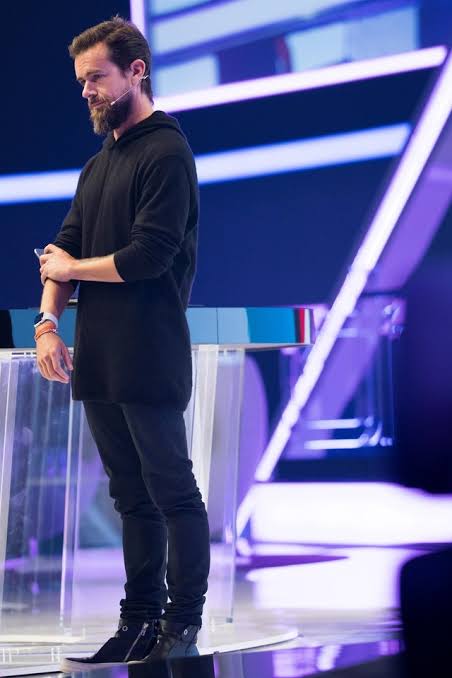
Twitter’s CEO, Jack Dorsey, doesn’t eat for 22 hours of the day, and sometimes not at all. Over the weekend he tweeted that he’d been “playing with fasting for some time,” regularly eating all of his daily calories at dinner and occasionally going water-only for days on end. In many cases, severe and arbitrary food restriction might be called an eating disorder. And while researchers are hopeful that some types of fasts may be beneficial to people’s health, plenty of tech plutocrats have embraced extreme forms of the practice as a productivity hack.
Dorsey’s diet was widely criticized on the website he runs, but Silicon Valley has an obsession with food that goes far beyond the endorsement of questionable personal-health choices. Intermittent fasting is a type of biohacking, a term that includes productivity-honing behaviors popular among Silicon Valley power players for their supposed ability to focus a person’s energy to work longer and more efficiently. To enhance themselves personally, tech leaders have adopted everything from specially engineered nutrition shakes to gut-bacteria fecal tests.
What and when most people choose to eat is no one’s business but their own, but someone like Dorsey isn’t most people: He leads a platform with hundreds of millions of active users, built for the quick, contextless dissemination of ideas. As biohacking’s most powerful disciples become more committed and more evangelical, what does that portend for the vast workforces they employ, and for the far larger populations whose lives are affected by their products and policies?
Intermittent fasting, like most health-and-wellness behaviors, can exist anywhere on a spectrum that runs from very dangerous to potentially beneficial, depending on who’s doing it and how it’s implemented. Fasting in one form or another has been a part of human eating behavior for millennia, and although scientific research on it is still preliminary, early studies suggest it might help reduce the risk of heart disease, cancer, and diabetes. For people with eating issues, though, fasting can be a very risky trigger for anorexia or bulimia. For most people, exploring Dorsey’s lengthy, everyday fasts without oversight from a doctor or nutritionist is probably unwise. (Dorsey and Twitter did not immediately respond to requests for comment.)
On his Twitter account, Dorsey doesn’t mention anything about long-term disease risk or even weight loss, which is a purported benefit of fasting that’s gained the practice a lot of attention over the past several years, including from celebritiessuch as Kourtney Kardashian and Chris Pratt. Instead, Dorsey focuses on how much time slows down when he hasn’t eaten anything. Considering the demands of his job, it’s not surprising that a longer day would be important to him: Silicon Valley is, by and large, always looking to find a way to do a little bit more work. The tech industry also employs a younger-than-average workforce, full of burned-out Millennialswho are expected to performatively hustlein order to curry professional favor and advance their career, creating what’s potentially an ideal environment for unhealthy “health” practices to proliferate.
Whether any Silicon Valley tech companies have implemented biohacking behaviors as an expectation for their employees is hard to know, but the industry itself produces a lot of diet programs and products, and it has a history of coercive eating policies for its workforce. Many big tech companies have on-site employee cafeterias that provide food for free or reduced cost. “By helping your employees make healthier decisions, your business benefits with reduced absenteeism and more productive energy,” wrote Andrea Loubier, the CEO of Mailbird, in a 2017 op-ed that encouraged other tech execs to follow Google’s lead and provide employees with certain types of food in-house, as well as with calorie-counting information. These policies are usually framed as a win-win for employers and their workforce—who doesn’t want a free lunch?—but in the end, they still tend to keep employees close to their desk and working as much as possible.
For companies that can’t build on-site food service for their employees, it’s possible to take a strong-arm approach to moderating their workforce’s diet and physical activity in other ways. Office wellness programs are popular and widespread even outside of the tech sector, with many of them featuring things such as office weight-loss challenges that encourage employees to restrict their eating for fun and prizes. As the journalist Angela Lashbrook argues, these programs can act as employer surveillance masquerading as health. “It’s perfectly legal to increase health-care premiums based on the failure of a customer or their partner to achieve certain benchmarks in an insurance-affiliated wellness program,” she writes.
In collecting detailed data about weight or physical activity, workplace wellness takes another step toward punishing failures that don’t necessarily show up in the quality of a person’s work, helping make an ever larger portion of a person’s existence fodder for performance reviews.
Certainly, it’s possible for executives to keep their personal-health practices separate from what they expect of others. But tech as a business sector has long been notorious for its bad boundaries between the personal and the professional. Silicon Valley can give the impression that all personal choices should be made for the end goal of doing ever more work and generating ever more money for founders or venture capitalists, which is part of why so many people find it unnerving to watch a man with so many employees decide that not eating is a valuable practice. If everyone above you on the organizational chart refuses to eat in order to squeeze a little more work out of an already long day, consuming your sad desk salad might be a little higher-stakes than you thought. The person who signs your paychecks might be watching.
By the Atlantic





